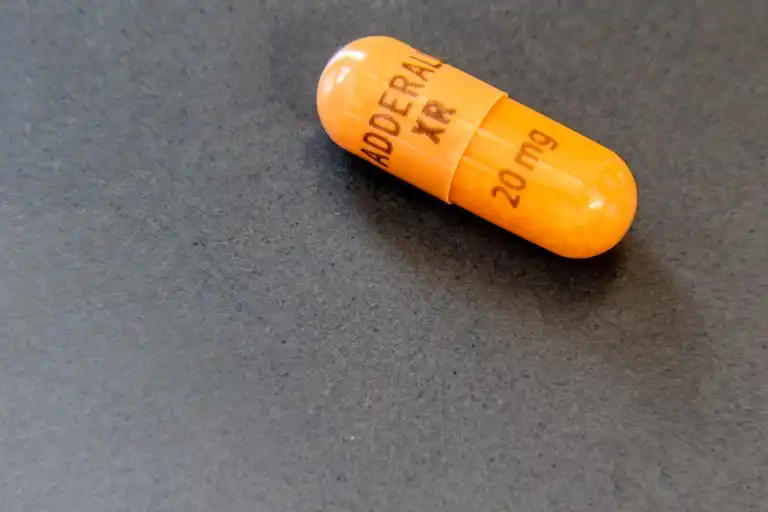Ever had butterflies in your stomach before a big event or felt your gut clench during a stressful moment? That’s not a coincidence; it’s your gut and brain having a little heart-to-heart. This connection, known as the gut-brain axis (GBA) is a secret highway between your brain and your digestive system, influencing everything from your mood to your digestion.
Think of your gut as more than just a place for digestion; it’s a second brain. It sends signals that affect how you feel, think, and even handle stress. When the GBA gets thrown off balance, say, by chronic stress, it can lead to problems like mood swings, anxiety, or even Irritable Bowel Syndrome (IBS).
Understanding this connection can unlock powerful ways to improve your mental health, starting from the inside out. At PsychPlus, we’re all about bridging the gap between your mental and physical well-being. Whether you’re dealing with stress, mood swings, or digestive discomfort, we’re here to help you navigate your journey toward health and balance. Curious to learn more? Visit our homepage and discover how we can support you every step of the way.
Your gut and brain have been talking, maybe it’s time you joined the conversation!
What is the Gut, Brain Axis (GBA)?
Imagine your brain and your gut are on a constant phone call, sharing information back and forth. That’s essentially what the gut-brain axis (GBA) is all about. It’s the incredible connection between your brain and your digestive system, where signals are constantly being sent in both directions. This means your brain affects your gut (hello, stress-induced stomach aches) and your gut can influence how you think and feel (ever feel “off” after eating something heavy?).
The GBA relies on a complex network of nerves, hormones, and even the millions of bacteria living in your gut. These bacteria, known as the gut microbiota, are like little messengers that carry vital information between your gut and brain. When your gut microbiota is healthy, it promotes balanced emotions, good mood, and overall well-being. However, when something disrupts that balance, like stress or poor diet, it can lead to uncomfortable symptoms like bloating, digestive issues, or even mental health challenges like anxiety or depression.
And guess what? The GBA doesn’t just work the other way around, stress and emotional states directly affect your gut function too. For instance, when you’re feeling anxious or stressed, your gut can go into overdrive, leading to issues like cramping, diarrhea, or that heavy, bloated feeling. It’s the perfect example of how our minds and bodies are more connected than we often realize.
Want to learn more about how food can play a role in this connection? Check out our related blog on how food can change your mood for some tasty tips on eating to support both your gut and your brain.
When it comes to the GBA, it’s clear that a healthy gut leads to a healthier mind, and vice versa. And understanding how this communication works can be a game-changer for managing everything from stress to digestive issues.
New Research on Stress and Gut Health
Recently, a fascinating study by Toshinori Yoshioka and his team at Tokyo University of Science has shed new light on the relationship between stress and gut health. The research, published in Frontiers in Neuroscience, focused on how prolonged psychological stress can actually cause symptoms similar to Irritable Bowel Syndrome (IBS). This study is a breakthrough, as it’s the first to show in animal models that stress alone, without any other underlying physical causes, can trigger these gut symptoms.
Why is this important? It highlights how powerful stress can be in disrupting the delicate balance of our digestive system. We often think of stress as a mental or emotional issue, but this study makes it clear that it can physically manifest in our gut as well. The findings underscore the need to address both the mind and the body when it comes to treating conditions like IBS and other stress-related disorders.
This research also opens the door for new treatment possibilities. By understanding how stress contributes to gut health issues, we can begin to explore therapies that target both the mind and the gut. For example, stress management techniques like mindfulness, therapy, and lifestyle adjustments could be used alongside traditional treatments for IBS to create more comprehensive and effective treatment plans.
If you’re struggling with stress-related gut symptoms or looking for guidance on how to manage your mental and digestive health, book an appointment with one of our experts today. We’re here to help you find the right solutions tailored to your needs.
How Chronic Stress Disrupts Gut Health
When stress becomes chronic, it doesn’t just weigh on your mind, it takes a toll on your gut. You might not realize it, but the stress you’re feeling could be directly affecting your digestion, causing discomfort that goes far beyond the mental strain. So how exactly does stress mess with our gut? Let’s break it down:
Gut Microbiota Balance
Your gut is home to a diverse community of bacteria, known as your gut microbiota, that help with digestion, immunity, and even mood regulation. Stress can disturb this balance, creating an imbalance that might lead to overgrowth of harmful bacteria and a reduction in beneficial ones. This disruption can negatively affect your digestion and your mental state, contributing to things like anxiety, depression, or even digestive disorders.
Gut Permeability and Inflammation
Stress can also affect the permeability of your gut lining, a condition often referred to as “leaky gut.” When the gut lining becomes damaged, toxins and undigested food particles can leak into your bloodstream, causing inflammation throughout the body. This chronic low-grade inflammation can not only make your gut feel worse, but also lead to further issues like joint pain, fatigue, and brain fog.
Symptoms: Bloating, Pain, and Irregularity
All this disruption in your gut can manifest as physical symptoms. You might experience bloating, cramping, diarrhea, or constipation, classic signs of IBS. These uncomfortable gut symptoms are often exacerbated when you’re stressed, creating a vicious cycle where the stress makes your gut feel worse, and the discomfort causes more stress.
Lifestyle Changes to Manage Stress and Gut Health
The good news is, there’s a lot you can do to help your gut heal and regain balance. Start by incorporating stress-reducing habits into your routine:
- Mindfulness practices like meditation or deep breathing can help calm your nervous system and ease stress.
- Regular exercise not only reduces stress but also promotes a healthy gut microbiota.
- A balanced diet rich in fiber, probiotics, and anti, inflammatory foods (like leafy greens, berries, and fermented foods) can support both your mental and gut health.
- Getting enough sleep is crucial for gut repair and for reducing stress hormones that can wreak havoc on your digestive system.
Want to learn more about managing stress and improving gut health? Check out the PsychPlus Blog for additional tips and insights. Taking small steps to manage your stress can lead to big changes in your overall well-being, both mentally and physically.
Therapeutic Approaches to Strengthen the Gut-Brain Axis
Now that we’ve explored the fascinating connection between stress, gut health, and mental well, being, let’s dive into some practical strategies that can help restore balance to your gut-brain axis. Whether you’re managing stress, improving your diet, or exploring supplements, these approaches can make a real difference in your health.
Stress Management Techniques
Chronic stress is one of the most powerful disruptors of the gut-brain axis. Thankfully, there are a variety of stress, reducing techniques that can help calm your mind and support your gut at the same time:
- Mindfulness and Meditation: Practicing mindfulness allows you to focus on the present moment, reducing the constant worry that contributes to stress. Apps like Headspace or Calm can guide you through relaxing meditations, which help lower stress hormones that can negatively affect your gut.
- Yoga: The gentle movements and deep breathing in yoga promote relaxation, reduce cortisol levels, and improve digestion. It’s not just for flexibility; it’s a great way to reduce stress and support gut health.
- Breathing Exercises: Simple deep breathing exercises can activate the parasympathetic nervous system, helping to reduce stress and support digestion. Try the 4, 7, 8 breathing technique or deep belly breathing to calm your mind and promote better gut function.
Dietary Recommendations to Support Gut Health
Your diet plays a huge role in balancing your gut-brain axis. What you eat can either support or disrupt your gut microbiota. Here are some key dietary recommendations:
- Fiber-Rich Foods: Foods like vegetables, fruits, beans, and whole grains feed your healthy gut bacteria, promoting a diverse and balanced microbiota.
- Fermented Foods: Incorporating fermented foods like yogurt, kefir, kimchi, and sauerkraut can introduce beneficial probiotics into your gut.
- Anti-Inflammatory Foods: Eating foods that reduce inflammation, like fatty fish (salmon, mackerel), nuts, seeds, turmeric, and leafy greens, helps protect your gut lining and supports your overall health.
Probiotics, Prebiotics, and Psychobiotics
- Probiotics: These are the “good” bacteria that help balance your gut microbiota. You can get probiotics from fermented foods or supplements. Look for strains like Lactobacillus and Bifidobacterium, which have been shown to support gut health and improve mood.
- Prebiotics: These are foods that feed the good bacteria in your gut. Foods like garlic, onions, asparagus, and bananas are great sources of prebiotics, which help maintain a healthy balance of gut bacteria.
- Psychobiotics: This newer field of research explores how specific probiotics can impact mental health. Certain strains of probiotics have been linked to improved mood, reduced anxiety, and even depression. It’s still early days, but adding gut-friendly foods and supplements to your routine can support your mental well-being.
The Importance of Consulting a Healthcare Professional
Strengthening the gut-brain axis is not a one-size-fits-all process. If you’re dealing with persistent digestive or mental health issues, it’s important to consult a healthcare professional who can guide you in making the best choices for your unique situation. Whether you’re looking to manage stress, improve your diet, or explore supplements, personalized advice can help you achieve optimal results.
If you’re ready to take action and work with an expert to improve your gut and mental health, get a referral today. At PsychPlus, our team is dedicated to helping you build a healthier, happier you, inside and out.
Supporting Gut-Brain Health Through Lifestyle
Taking care of your gut-brain axis (GBA) doesn’t have to be complicated. Small, consistent changes in your daily life can go a long way in supporting this vital connection between your gut and your mind. Here are some actionable tips that can help keep your GBA healthy and balanced:
Incorporating Stress, Reducing Practices
- Mindfulness & Meditation: Take 10, 15 minutes each day to meditate or practice mindfulness. Simple breathing exercises or guided meditations can help manage stress and promote a calmer mind, which in turn supports your gut health.
- Deep Breathing: Try deep breathing exercises, like the 4, 7, 8 technique, to help trigger the body’s relaxation response. This can reduce stress, lower cortisol, and promote better digestion.
- Journaling: Writing down your thoughts and emotions can help process stress, which may alleviate some of the tension that contributes to gut discomfort.
Following a Gut-Friendly Diet
- Eat Fiber-Rich Foods: Incorporate whole grains, fruits, vegetables, and legumes into your meals. These are rich in fiber, which supports healthy digestion and helps feed the beneficial bacteria in your gut.
- Consume Fermented Foods: Foods like yogurt, kimchi, kefir, and sauerkraut are packed with probiotics, which can boost your gut microbiota.
- Avoid Processed Foods: Minimize your intake of sugary, processed, or highly refined foods, which can harm gut bacteria and lead to inflammation.
- Hydrate Well: Drinking enough water is crucial for healthy digestion and helps maintain the lining of your intestines, supporting better gut function.
Maintaining Regular Sleep and Exercise Routines
- Prioritize Sleep: Aim for 7-9 hours of quality sleep each night. Sleep plays a significant role in gut health, allowing the body to repair itself and restore balance.
- Regular Exercise: A consistent exercise routine helps improve circulation, reduce stress, and supports gut health by promoting a diverse microbiota. Aim for at least 30 minutes of moderate activity most days of the week.
By integrating these habits into your daily routine, you’ll help strengthen your gut-brain axis, enhancing both your mental and digestive health.
Future of Gut-Brain Research and What It Means for You
The study of the gut, brain axis is still evolving, and exciting breakthroughs are on the horizon. As research continues, we’re gaining a deeper understanding of how gut health impacts mental health and how to harness this knowledge for better treatments. Some of the most promising areas of research include:
Personalized Gut Microbiota Therapies
Scientists are exploring ways to personalize treatments based on your unique gut microbiota. Just as we now have personalized medicine for conditions like cancer, we may one day have tailored therapies to support gut health and mental well-being. This could involve customizing probiotic supplements, diet plans, or even gut microbiota transplants to address specific imbalances that affect your mental health.
Psychobiotics
Another exciting field is psychobiotics, the study of probiotics and prebiotics specifically designed to improve mood, reduce anxiety, and support mental health. As we discover more about the specific strains of bacteria that influence our brains, these targeted treatments could revolutionize the way we approach mental health care.
Gut-Brain Axis and Mental Health
Ongoing research is showing just how deeply interconnected the brain and gut are. This growing body of knowledge continues to reveal that improving gut health could help prevent, manage, or even treat mental health conditions like anxiety, depression, and stress.
The future of gut-brain research is incredibly promising, and as these breakthroughs unfold, they’ll help create more effective and holistic treatment options for mental health disorders. Stay tuned as we continue to track these exciting developments and explore how they can improve our health.
If you’re curious about how your gut health might be impacting your mental well-being, it’s always a good idea to consult with a healthcare professional. At PsychPlus, we’re committed to helping you address both your gut and mental health needs with comprehensive care. If you’d like to take the next step, schedule an appointment today!





